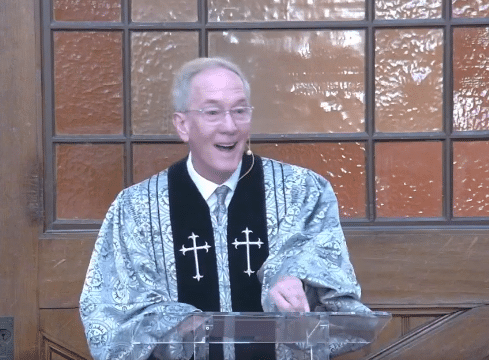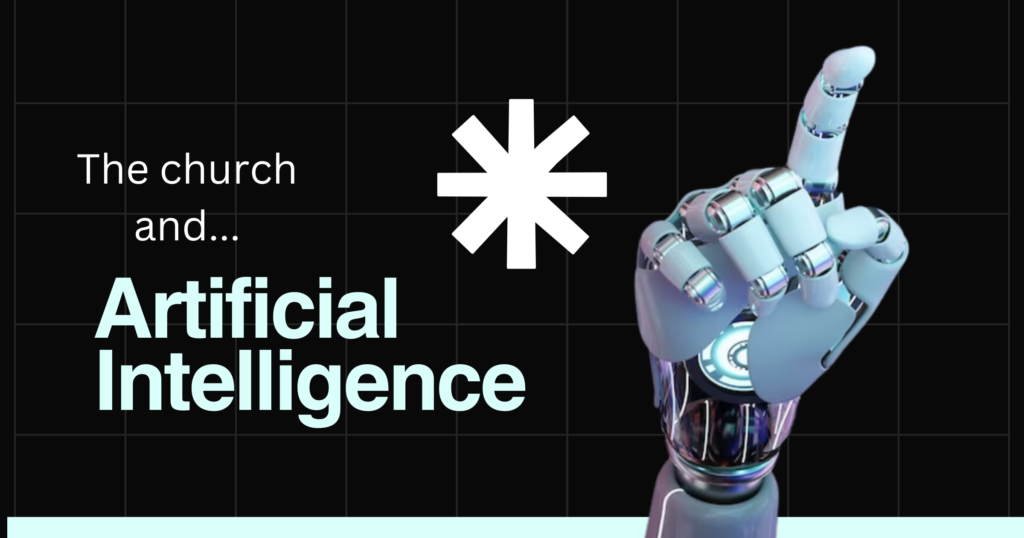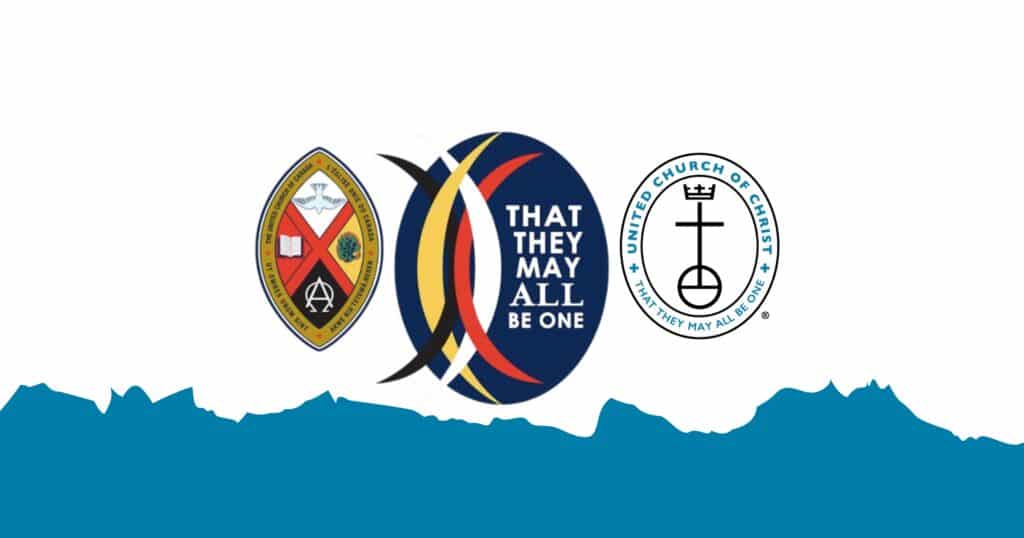Artificial Intelligence in the pulpit: a church service written entirely by AI
Would you attend a church service if you knew that it was written entirely by an Artificial Intelligence (AI) program? What would your thoughts and feelings be about this use of AI?

That’s exactly what the Rev. Dwight Lee Wolter wanted to know — and he let his church members at the Congregational Church of Patchogue on Long Island, New York, know that was what he was intending to do on Sunday, July 14. He planned a service that included a call to worship, invocation, pastoral prayer, scripture reading, sermon, hymns, prelude, postlude and benediction with the use of ChatGPT. ChatGPT is a free AI program developed by OpenAI, an Artificial Intelligence research company and released in 2022.
Taking fear and anger out of exploration
“My purpose is to take the fear and anger out of AI exploration and replace it with curiosity, flexibility and open-mindfulness,” said Wolter. “If, as widely claimed, churches need to adapt to survive, we might not recognize the church in 20 years if we could see it now; then AI will be a part of the church of the future. No matter what we presently think of it, it will be present in the future doing a lot of the thinking for us.”
Wolter believes that AI is already a part of the church of the present. “In the most simplistic ways, AI is already assisting many pastors and educators as well as chaplains with research, writing and outreach. It is already handling many office tasks such as data entry, scheduling and messaging.”
Breaking news changes
When the news on Saturday about an assassination attempt of former President Donald Trump broke, Wolter felt that he needed to update the AI service that was already written. “I thought if the service is AI, then let AI assist me. I asked ChatGPT to write a church prayer for the aftermath of yesterday’s tragedy.” He was pleased with the results, and said, “The prayer was beautiful.”
Unsurprisingly, the attendance was good. Wolter believes that his congregation knows him well, as he has been leading them for 16 years. He has previously shared other contentious sermon topics, such as comparing doll figures Barbie and Ken to Adam and Eve of the Bible.
“People were curious, but cautiously so. We began with an instrumental prelude written by AI from a simple, one line prompt by our musical director. The music was quite pretty, calming and appropriate to church. My intention was for the music to help people feel relaxed and open to OpenAI.”
Wolter explained, he “stepped out” of the AI writing to explain some things to church members, such as how an Amazon Alexa smart speaker takes cues from music streamer Spotify to make musical suggestions based on prior song requests.

Wolter said, “I explained what a prompt is to the congregation, and shared that the prompt I used was to request a church sermon to be delivered to a congregation that has mixed feelings about using AI. I used this to write the sermon, prayers, anthems, hymn suggestions, prelude and postlude.” He further explained, “I decidedly did not want a church service about AI. I wanted a church service by AI. It truly went very well.” He feels the congregation left more pleased than they were prepared to be.
Wolter intends to follow up Sunday’s service with a reflection about how it went. On July 21, he will give a sermon about AI, with people offering input about the AI service. “We will discuss their reactions, feelings, thoughts, likes and dislikes, concerns and questions.” Wolter will follow with his synopsis sharing the benefits, criticisms, fears and concerns of AI. This service will be streamed live on their church Facebook page.
The future of AI and loneliness
Wolter shared, “I will also mention my beliefs about the future of AI that is partially excerpted from a chapter entitled, “The Future of Loneliness” in The Gospel of Loneliness (a book published in 2023 by the Pilgrim Press).

“I believe AI will have a significant impact on those in pulpits and those in pews, church life, definitions of community (including hybrid services), mission, ministries, theology, ethics, boundary awareness training, administration, chaplaincy, and as mentioned, loneliness.” Wolter shared his feelings about loneliness with the UCC News back in February.
Wolter believes we need to “disarm contempt prior to investigation,” when it comes to things like Artificial Intelligence. “AI is not going anywhere. It’s a tool–and with a shortage of clergy, money and volunteers, we will continue to rely on it.”
Content on ucc.org is copyrighted by the National Setting of the United Church of Christ and may be only shared according to the guidelines outlined here.
Related News
Who’s Next?
This week the Supreme Court agreed to oral arguments on the challenges to Presidential...
Read MoreGender and Sexuality Justice Ministries joins global movement to end violence against women, children
The Gender and Sexuality Justice Ministries (GSJM) of the United Church of Christ has joined...
Read MoreUCC and United Church of Canada celebrate a decade of ‘shared mission, mutual accountability, common hope in Christ’
Ten years ago, the United Church of Christ (UCC) and The United Church of Canada (UCCan)...
Read More


